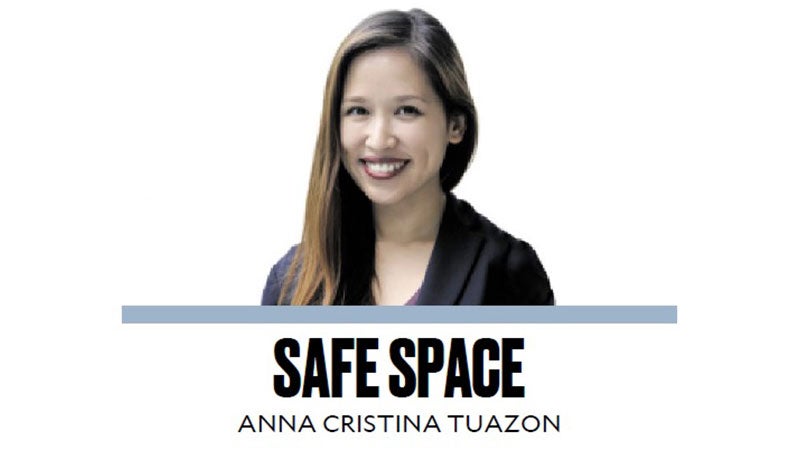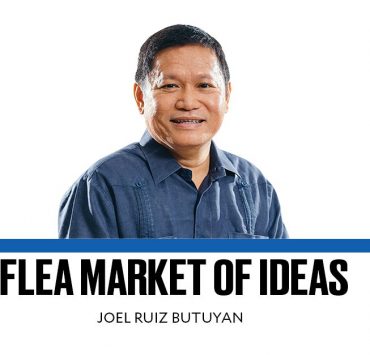Post-rally: Now what?

The rallies and protests last Sunday were a success as a setting for people to come together to let their voices be heard. The timing of the protests, held on the anniversary of the declaration of martial law in 1972, also helped people connect our present plight to history and context, recognizing that our current problems are not limited to the current personalities involved, nor did these corrupt practices emerge overnight.
Filipinos were able to take a step back and take in the big picture: that we have been living under a rigged system that funnels wealth among the few at the expense of Filipino suffering. As the now-famous saying goes, we are not poor, we are plundered. No longer do we resign ourselves to the view that life is simply this way, or to how the President described the devastation brought about by flooding—before the scandals behind them erupted—that this is our “new normal.” No longer do we assume that any of this is normal. Or acceptable.
Throughout the week, chitchat and small talk revolved around the ongoing corruption scandal, from rides with my Grab driver to medical checkups with my doctor. Eventually, such conversations end here: “Do you think anything will change from now on?”
It is a question that dares to hope and, at the same time, is fully aware that the odds are against us, given our country’s track record with corruption. The fact that the political names involved now are the same names involved in the pork barrel scam back in 2013 tells us that we have had a tough time keeping powerful people accountable. And yet, something about the experience of collective action last Sunday gave us a spark, that, perhaps this time, change may come.
The one fallacy that I hope to urgently clarify is that our actions shouldn’t start and end in one rally. Temporary change is easy; permanent change is hard. In the realm of behavioral change, changing our behavior one time is not enough. If we treat corruption as a chronic problem behavior—a bad habit, so to speak—changing how we react to it once won’t be enough. New habits can only be formed when the new behavior becomes more frequent than the old behavior. If we only show our outrage and demand accountability once every few years, corrupt behaviors will adjust to this cycle. They will lie low during the periods of outrage, ready to ramp up again during periods of public dormancy.
We also need to be mindful that behaviors that are extinguished in one situation can easily reemerge in another context if we do not address the true function of a behavior, such as when smoking cessation can lead to increased eating if we do not address how people cope with stress. Right now, we are overly focused on flood control projects. We need to be alert to many other avenues for corruption, such as building and road infrastructure projects, customs, taxes, and permit processes. Right now, our national budget is reportedly being realigned from flood control projects toward medical assistance and other social services projects, which we know in current practice are being directed by senators and congresspersons—yet another form of pork barrel. It is not these specific programs that are the problem per se, but our tendency to obfuscate application processes for such services, requiring us to seek patronage from individual politicians, allowing them to hold sway in areas, as legislators, in which they should have no business.
Even if we ensure that consequences occur for the current set of identified players in the flood control projects, many corrupt behaviors (those not in the spotlight) remain without consequence, and business goes on as usual. This is what makes corruption so difficult to root out. It’s not enough to file charges against a couple of district engineers, contractors, or even politicians. We must address corruption at all levels, though more ideally starting from the top. We must make it virtually impossible to hide corrupt practices.
We also need to ensure that whatever consequences we implement stick. Near-miss experiences increase a sense of invincibility and, in turn, increase risk-taking. By being inconsistent with our enforcement, we risk people getting into the habit of successfully escaping accountability, thereby making them even more brazen and without remorse.
The way to extinguish corruption is to ensure that there is no place for it to go. And the way to do that is to be consistent with our cry for accountability. This can be done through protests, through active civil engagement with legislative processes, and through our own self-discipline not to condone corruption in our daily lives. We can even address the function of corruption for these politicians–to gain power. We must, as an electorate, retrain them to learn that their power comes from the trust of their constituents, not from the money in their pockets.


















Lessons from another revolution